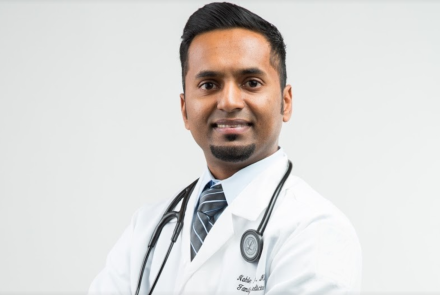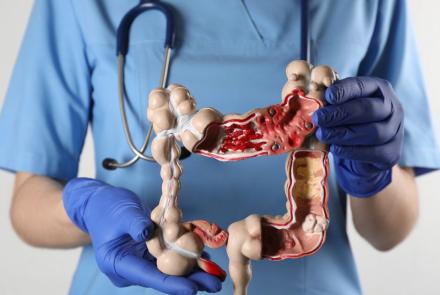If you have pain or bleeding from the rectum, you likely have questions. But you may be embarrassed or uncomfortable asking them. Dr. Ziad N. Kronfol, M.D., a colorectal surgeon at Highland Surgical Associates and Montefiore Nyack Hospital, has answers.
Q: Are my pain and bleeding hemorrhoids?
A: Hemorrhoids are blood vessels in the anal canal. We all have them. They only cause issues when they get swollen. This can be caused by pregnancy, or straining because of constipation or diarrhea.
There are two types of hemorrhoids – internal and external. Internal hemorrhoids occur in the lower rectum. They are typically painless, even if they cause bleeding. External hemorrhoids develop under the skin around the anus. They tend to hurt but not bleed. They may cause a pain or lump in the anal area.
Q: How do I fix hemorrhoids?
A: Eat plenty of fiber. High-fiber foods include broccoli, beans, wheat and oat bran, whole-grain foods, and fresh fruit. If you tend to get hemorrhoids, you may want to use a fiber supplement (such as Metamucil, Citrucel, or Fiber Con).
Also drink lots of water. Getting enough fiber and fluid in your diet softens stools and makes them easier to pass. This reduces pressure on hemorrhoids.
If changing your diet doesn’t fix your hemorrhoids, you may need an office-based surgical procedure called rubber band ligation. A small elastic band is placed around the base of a hemorrhoid. The band causes the hemorrhoid to shrink and the surrounding tissue to scar as it heals, holding the hemorrhoid in place. If further treatment is required, the doctor may recommend surgically removing the hemorrhoid.
Q: Will over-the-counter cream help my hemorrhoids?
A: Over-the-counter hemorrhoid creams containing a local anesthetic can temporarily soothe pain or medications that decrease inflammation and swelling. But they don’t solve the root of the problem, which is straining when you go to the bathroom. That’s why it’s important to get enough fiber and fluids.
Q: What else could pain and bleeding be caused by?
A: Another possible cause of pain and bleeding in the rectal area is called an anal fissure. This is a cut at the anus. It is also usually caused by straining from constipation or diarrhea. It often can be treated with cream prescribed by the doctor. If the cream doesn’t help, the next step is surgery to fix the fissure.
Q: What’s that painful pus-filled bump I have near my rear end?
A: It could be a perianal abscess or fistula. It happens when one of your anal glands gets clogged and infected. Certain medical conditions or other factors may increase your risk of perineal abscesses. Your healthcare provider can drain a perianal abscess.
Q: What do I do about burning or itching around the anus?
A: Burning or itching can be caused by excessive moisture in the area. That’s why we don’t recommend using baby wipes after a bowel movement. Your doctor can prescribe a cream for this. I also recommend buying a bidet hose or sprayer. This is an attachment that can connect to the water supply of your toilet that cleans your anal area. It can reduce burning and itching.






